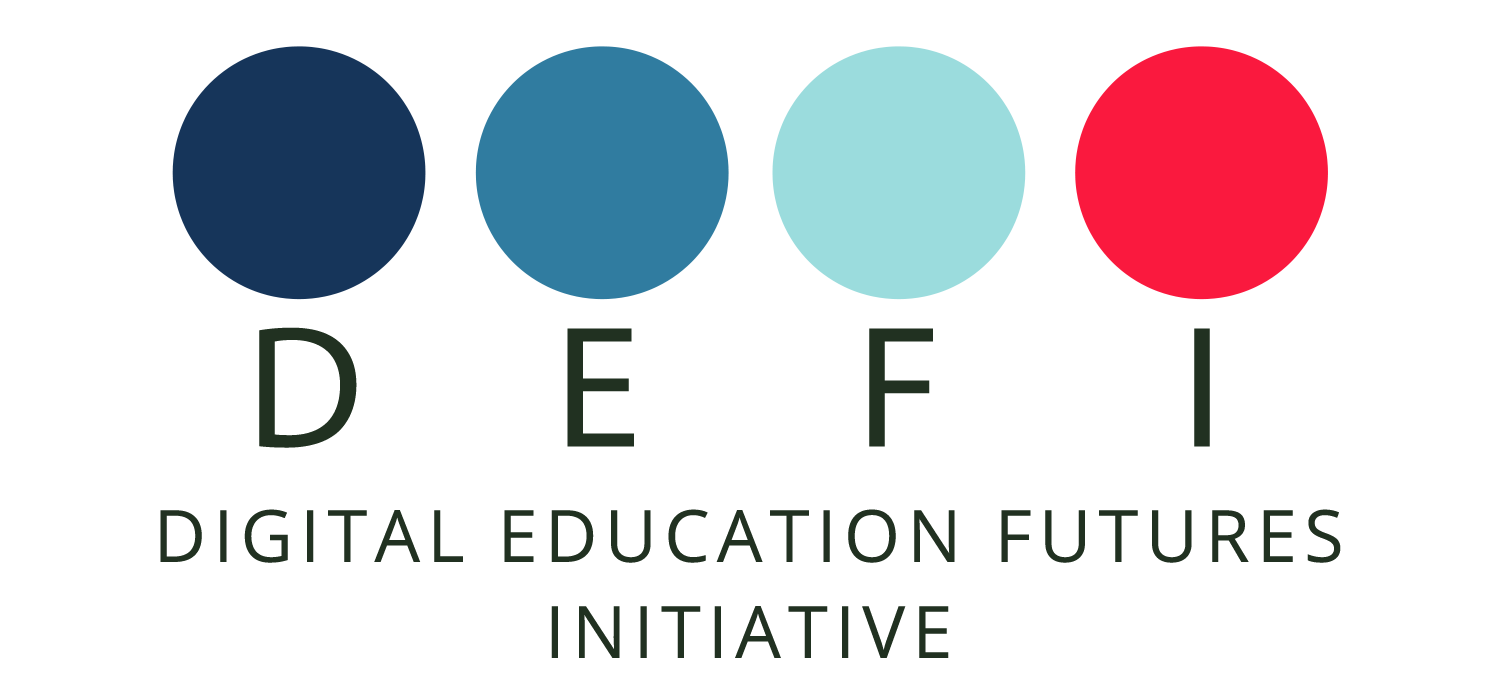Dr Imogen Casebourne
Innovation Lab Research Lead

Dr. Imogen Casebourne is the research lead at the Innovation Lab at DEFI. She has a DPhil in Education (Oxon) and an MSc in Artificial Intelligence, for which she developed an AI program that wrote short stories (Sharples & Pérez y Pérez, 2023 p.8-10). She recently co-edited a book for Springer on AI and Education and co-authored a paper on AI and Collective Intelligence . In 2023, she designed and taught a short introductory course on AI and Education for students at the Faculty of Education, University of Cambridge. She is currently a co-convener of the BERA special interest group dedicated to AI and intelligence, and works alongside UNESCO Futures Chair Dr. Abu Sitta, on DEFI’s Horizon Scanning and Futures thinking projects.
Imogen is interested in the design, development, deployment and evaluation of educational technology, and particularly in the role technology might play in supporting experiences of community, dialogue and serendipity in learning. Prior to joining DEFI, Imogen consulted for multiple organisations, including a leading Business School, Wikipedia and the NHS. She is also an award-winning EdTech designer with projects including a Maths Revision App for Harper Collins, and a mobile authoring tool which went on to become GoMo learning.
Recent publications
Casebourne, I., Shi, S., Hogan, M. et al. (2024). Using AI to Support Education for Collective Intelligence. International Journal of Artificial Intelligence in Education. https://doi.org/10.1007/s40593-024-00437-7
Casebourne, I., & Wegerif, R. (2024). The role of AI language assistants in dialogic education for collective intelligence. In P. Ilic, I. Casebourne, & R. Wegerif (Eds.), Artificial intelligence in education: The intersection of technology and pedagogy (pp. 111–125). Springer Cham. https://doi.org/10.1007/978-3-031-71232-6
Casebourne, I., Sitta, F.A. (2024). The Role of Emerging Technologies in Shaping the Futures of Teacher Wellbeing: A Futures-Thinking Perspective. In: Guralnick, D., Auer, M.E., Poce, A. (eds) Creative Approaches to Technology-Enhanced Learning for the Workplace and Higher Education. TLIC 2024. Lecture Notes in Networks and Systems, vol 1150. Springer, Cham. https://doi.org/10.1007/978-3-031-72430-5_7
Casebourne, I. (2024). Left to their own devices: An exploration of context in seamless work-related mobile learning. British Journal of Educational Technology. https://doi.org/10.1111/bjet.13410.
Casebourne, I. (2024). ‘Navigating context and conflict – Investigating seamless mobile learning through the lens of Hedegaard’s framework’. Learning, Culture and Social Interaction 47: 100837. https://doi.org/10.1016/j.lcsi.2024.100837.
Abu Sitta, F., Maddox, B., Casebourne, I., Hughes, S., Kuvalja, M.,& Oates, T. (2023). The futures of assessment – Navigating uncertainties through the lenses of anticipatory thinking. Cambridge: Digital Education Futures Initiative (DEFI) & Cambridge University Press and Assessment. ISBN number: 978-1-7384336-0-5.
Hogan, M. J., Barton, A., Twiner, A., James, C., Ahmed, F., Casebourne, I., Steed, I., Hamilton, P., Shi, S., Zhao, Yi., Harney, O. M., & Wegerif, R. (2023). Education for Collective Intelligence. Irish Educational Studies 2023: 1–30. https://doi.org/10.1080/03323315.2023.2250309.


